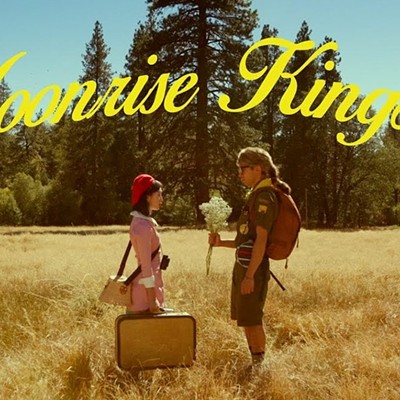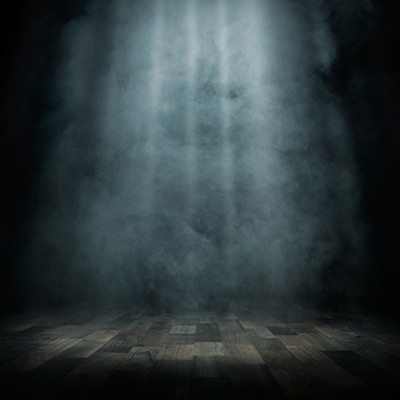A warm-and-fuzzy eco-terrorist, three uppity Afghan women, a skid-row bum, a retired Guatemalan dictator, a gay boy and a burned-out liberal senator walk into a crowded movie theater ...
Not really, but there is one thing they do have in common: They all show up in the Human Rights Watch Film Festival, playing at the Loft Cinema and other venues around Southern Arizona over the next couple of months. I caught the opening film in this series on Feb. 7, and if it's any indication of the quality and power of the rest of the films on the schedule, mark your calendars now.
If a Tree Falls is the story of convicted arsonist Daniel McGowan, currently serving seven years of hard time for conspiring with other members of the radical Earth Liberation Front to set fire to various elements of the infrastructure of environmental destruction.
The film is beautifully constructed from poignant, revealing interviews and stunning historical footage of the ongoing conflict between insatiable resource extraction and those who defend the inherent right of the natural world to exist and thrive. Much of the story focuses on the majestic ancient forests of Oregon, the vast majority of which have been systematically destroyed for profit in the past century.
After years of scrawling his objections to such madness in an untold number of letters to decision-makers and on placards held aloft at peaceful protests, Mr. McGowan—a rather naïve, Hobbit-like young man—lost his patience and decided that burning shit up would be the next-best course of action. For this, he was figuratively burned by a co-conspirator in a carefully constructed sting operation that resulted in his arrest and conviction, years after he had walked away from the ELF altogether upon concluding that burning shit up was not such a good strategy after all.
Young Daniel refused to cooperate with the G-men who gloated over his capture as if they had just tracked down Osama bin Laden—despite the fact that not a single person has been killed, or even injured, in the actions attributed to the ELF. Meanwhile, the charismatic leader of the movement who snitched on his friends avoided prison.
Other films in the series explore such ironies of injustice in painfully clear detail.
Love Crimes of Kabul, which was screened on Feb. 8 and will be shown again on April 3, profiles three young women sent to an Afghan prison for crimes of passion—which is to say for loving and making love with the freedom that all humans should enjoy. Lost Angels: Skid Row Is My Home, slated for Tuesday, Feb. 21, and Sunday, March 25, portrays the thousands of people who live on the streets of Los Angeles, many of whom are mentally ill, as they eke out a living in fear of brutal police and just about everyone else.
In Last Best Chance (March 27 and 28) and Mountains and Clouds (March 28), the late Sen. Ted Kennedy and a bipartisan collection of colleagues find out just how difficult it is to have a rational conversation about immigration in this country—especially when your starting point is to recognize the humanity of the migrants in question.
Some of the films speak not only to the urgent necessity of transformation, but also to the power of film to transform. Out in the Silence (March 15) examines the cultural backwardness of a small community clinging to intolerance, and in the process, moves some of the key subjects toward acceptance.
Granito: How to Nail a Dictator (April 17) explores the effort to prosecute Efraín Ríos Montt, an aging, former military dictator who commanded a scorched-earth campaign of genocide against the Mayan people of Guatemala in the early 1980s. Director Pamela Yates focuses on the crucial forensic role played by the footage she shot for When the Mountains Tremble, her courageous earlier effort to document these crimes against humanity.
The films will be accompanied by discussions with filmmakers and experts on the issues explored. Last week, it was clear that many in the audience felt a deep ambivalence toward Mr. McGowan's story. You might conclude that his means were immoral or ineffective, but you can't really question the underlying truth of his beliefs. Our world is undeniably careening toward global ecological collapse, and the sooner we strike at the underlying structure driving this dynamic, the better chance we'll have of surviving it.
To me, that's the fundamental lesson to take away from this series: Revolution itself is a human right—and often a necessity.
Check out the schedule of films at ff.hrw.org/Tucson.





